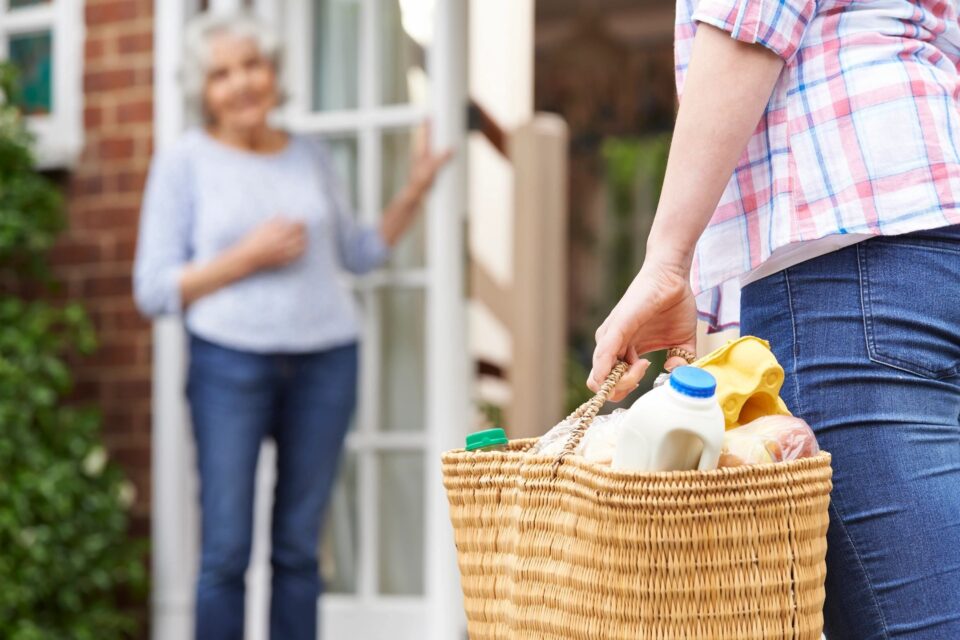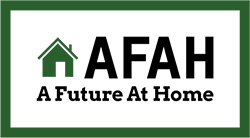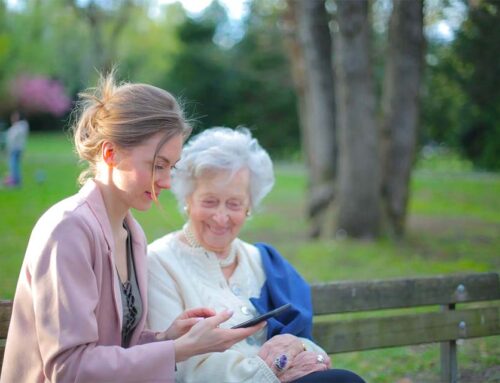Home Care & Home Share
An important part of staying at home longer is understanding when and how we can get resources to help us. Our local authority can provide some help but we will often need to look to private companies. Generally, there is a sliding scale of help, from simple hourly visits to live-in care. Home care brings a helper into the home. Homeshare brings people together for help, companionship, and accommodation. Let’s explore them here.

![mileswalkden [Recovered] Graphic of Older Man Gardening](https://afutureathome.com/wp-content/uploads/2023/08/Graphic-of-Older-Man-Gardening-890x640.jpeg)
Types of care available:

Elder Care – Home Help
A lot of what we are doing at AFAH involves taking on the challenges of ageing ourselves, which means taking control of our own futures through planning and acting before intervention is required. The good news is that we don’t have to do all of this alone. There are options for us to get help into the home, which may well be the difference between having to change where we live, or staying in our own home longer. Elder are a company who offer home care from very light touch, such as short-term help after hospitalisation or a few hours a week, through to full-time, live-in care.
In England, exceeding £23,250 in capital renders you ineligible for the council’s financial assistance towards care fees, classifying you as a ‘self-funder.’ Although the council won’t contribute to the costs, if you meet the eligibility criteria, you can still request the council to coordinate the provision of care services on your behalf. However, the council may require you to bear the entire expense of the care services, along with an additional fee for arranging the arrangements.
In Wales, the capital limit is set at £24,000. However, there is also a maximum weekly charge of £100. This means that if your capital surpasses the limit, the local council has two options:
-
They can request you to cover the full cost of the services they are providing, as long as it amounts to less than £100 per week.
-
Alternatively, they can ask you to pay the maximum weekly charge of £100 per week, regardless of the actual cost.
Please note that these financial thresholds and arrangements are specific to England and Wales, and may vary in other regions or countries.
Share and Care
Homeshare involves bringing together two people, often from two different generations. It address the pressing needs of two sets of people: it helps vulnerable, older or disabled people, the ‘Householder’, to stay connected to society, to feel safe, retain, and regain a level of supported independence, to acquire a sense of value and purpose, and to reduce loneliness and anxiety. Homeshare also helps the volunteers, the ‘Sharers’ (mature students, key workers, other professionals) with an affordable housing option.



